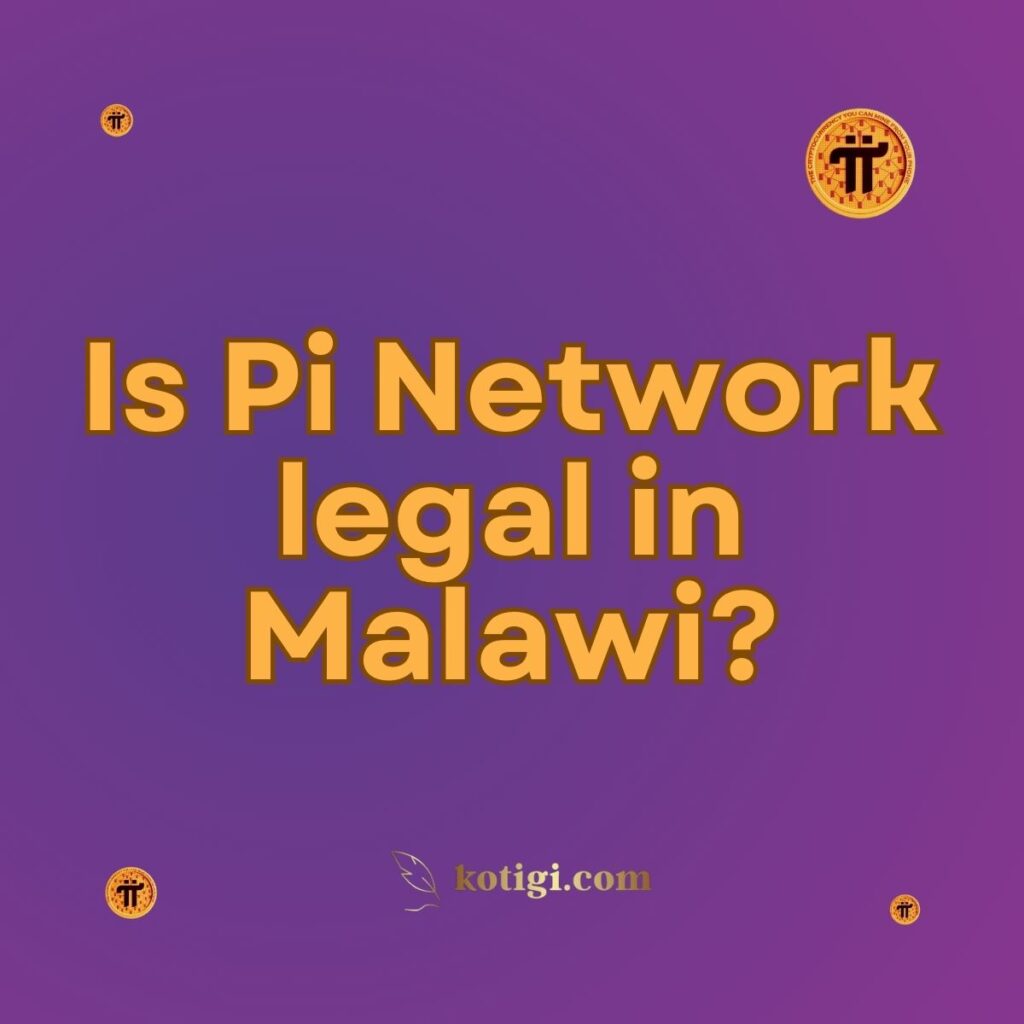
Is Pi Network legal in Malawi?
Yes, Pi Network is legal in Malawi. However, like any cryptocurrency-related activity, it is important for users to comply with local regulations regarding digital assets and online financial services.
Introduction
Pi Network has gained global attention for its innovative approach to cryptocurrency mining, allowing users to mine Pi tokens directly from their smartphones. As the network grows in popularity, many users from countries like Malawi are interested in participating. A common question is whether Pi Network is legal in Malawi and if there are any restrictions or regulations governing its use.
In this article, we explore the legal status of Pi Network in Malawi, what users should be aware of when engaging with the platform, and how local financial and digital regulations may affect cryptocurrency-related activities.
The Legal Framework for Cryptocurrency in Malawi
General Cryptocurrency Laws in Malawi
Malawi, like many other countries, is still in the early stages of regulating cryptocurrency. There is no comprehensive legal framework specifically for cryptocurrencies such as Pi Network. The Reserve Bank of Malawi (RBM), however, has expressed concerns about digital currencies, mainly focusing on the risks associated with volatility and lack of oversight. Despite these concerns, cryptocurrencies are not explicitly illegal in Malawi, and there are no bans on using platforms like Pi Network.
Role of the Reserve Bank of Malawi
The Reserve Bank of Malawi oversees financial regulations in the country. While it does not currently regulate Pi Network or other decentralized cryptocurrencies, it has issued warnings about potential risks. Users should stay informed about updates from the RBM regarding cryptocurrencies, as future regulations could impact how Pi Network operates in Malawi.
Local Policies on Digital Assets
As of now, Malawi does not have specific laws governing digital assets like Pi. However, financial transactions using cryptocurrencies must comply with general anti-money laundering (AML) and combating the financing of terrorism (CFT) laws. Users of Pi Network in Malawi should be cautious when exchanging Pi tokens or using them for any financial transactions.
International Cryptocurrency Use and Malawi
Pi Network’s Global Legitimacy
Pi Network operates in over 230 countries, and its mining process does not involve traditional cryptocurrency mining practices like using high energy consumption. This unique approach makes it accessible and generally less controversial in countries where energy consumption or environmental impact might be a concern.
Cross-Border Crypto Regulations
Although Pi Network is legal in Malawi, users should be aware of international regulations concerning cryptocurrency. Engaging in cross-border crypto transactions could be subject to scrutiny by financial authorities, especially when converting Pi tokens to fiat currency or using them in foreign jurisdictions.
User Responsibility and Awareness
Importance of KYC Compliance
Pi Network enforces a strict Know Your Customer (KYC) process before allowing users to transfer mined Pi tokens to the Mainnet. This process ensures that each user is verified and legitimate. KYC compliance also helps in aligning with global AML and CFT standards, making the platform more trustworthy and reducing risks for Malawian users.
Understanding the Legal Landscape
While Pi Network is legal, Malawian users should keep an eye on evolving regulations, as cryptocurrency adoption is a rapidly changing landscape. Staying informed will help users navigate potential legal changes that might arise as digital currencies gain more prominence in the country.
Potential Risks and Considerations
Volatility of Cryptocurrencies
One of the primary concerns with cryptocurrencies, including Pi Network, is their volatility. Pi’s value, once listed on exchanges, may fluctuate significantly. Users should exercise caution and avoid treating Pi as a guaranteed source of income or stable asset.
Risk of Scams and Fraud
As with any online platform, there is a risk of encountering scams or fraudulent activities. Pi Network emphasizes the importance of using official apps and channels to avoid phishing attacks or fake websites. Malawian users should only use verified platforms and apps to interact with Pi Network to safeguard their accounts.
Financial and Tax Implications
Income and Taxation Considerations
In Malawi, income generated through cryptocurrencies may eventually be subject to taxation once the government introduces specific laws governing digital assets. Although there is no direct tax regulation on Pi Network at the moment, users should be prepared for future developments, including the potential for declaring Pi holdings or profits from its use.
Future Regulation of Crypto Transactions
As Pi tokens gain monetary value, Malawian authorities may introduce specific regulations on digital currency exchanges, income, and transactions. For now, users should ensure they are compliant with local tax laws and monitor any regulatory announcements regarding cryptocurrencies.
Conclusion
Pi Network is currently legal in Malawi, but like in many other countries, there is no comprehensive cryptocurrency regulation in place yet. The Reserve Bank of Malawi has expressed caution regarding the use of cryptocurrencies, but there are no specific bans or restrictions on the use of Pi Network. Users should remain informed about changes in the legal and financial landscape, especially regarding KYC compliance, AML, and tax considerations.
As Pi Network evolves and gains more recognition globally, it is essential for Malawian users to follow local laws and stay aware of any upcoming regulatory shifts. By staying compliant and vigilant, users can safely participate in Pi Network and take advantage of the opportunities it offers.
Key Takeaways
- Legality: Pi Network is legal in Malawi, with no specific bans or restrictions on its use.
- Regulatory Oversight: The Reserve Bank of Malawi monitors cryptocurrencies but has not yet introduced comprehensive regulations.
- KYC Compliance: Pi Network enforces KYC processes to ensure user legitimacy and align with global standards.
- Tax Implications: While not currently taxed, cryptocurrency transactions in Malawi may become subject to taxation in the future.
- User Responsibility: Malawian users should stay informed about potential changes in cryptocurrency regulation and act responsibly to avoid legal or financial issues.





